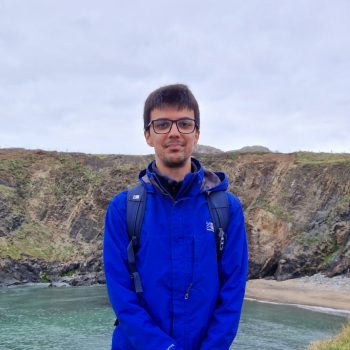
Robert Newbould
- University of Leicester
- Towards sustainable surface water ecosystems in India: Predicting the fate, transport and effects of urban wastewater pollutants in rivers
- Prof. Mick Whelan Dr. Mark Powell

Urban areas are a major source of water pollution in developing countries where a significant fraction of urban wastewater is discharged with little or no treatment. Urban wastewater contains a range of synthetic organic compounds (e.g. pharmaceuticals, home and personal care products) which can result in major ecological impacts. Understanding the sources, transport and transformation of pollutants and their impact on receiving ecosystems is crucial for effective water resource management and the reduction of chemical risks to people and the environment.
My PhD will improve the understanding of pollutant behaviour in rivers under direct (untreated) discharge scenarios and develop a model of wastewater derived pollutant exposure and ecotoxicological effects in surface waters within and beyond urban areas. The model will act as an extended hypothesis which will be calibrated and tested via field investigations in Kerala, India. The impact of organic pollutants from urban wastewater on surface water quality will be evaluated using a combination of existing water quality data and new monitoring of concentrations and fluxes of marker compounds intended to be representative of particular uses (e.g. personal care products, laundry product ingredients or pharmaceuticals) and chemical properties (e.g. hydrophobicity, degradability and toxic mode of action).
The in-channel fate of organic pollutants will depend on physico-chemical properties and compound degradability as well as environmental factors like temperature, pH, suspended solids concentration, dissolved organic carbon concentration and the hydraulics of the receiving system. We hypothesise that biodegradation will be more rapid in shallow streams than in deep rivers because the size of the competent microbial biomass in the water column is low compared with that in biofilms attached to the wetted perimeter of the channel. This means that degradation will depend on contact time with the fixed biofilm.
Prior to starting my PhD, I received a BSc in Geography from the University of Leicester. My undergraduate degree had a strong focus on hydrology and geomorphology and my dissertation investigated river channel changes caused by reservoir impoundment. After graduating, I decided to continue my studies at the University of Leicester and undertook an MPhil in Physical Geography. During the MPhil, I used a novel approach to investigate plastic transport in rivers. This approach combined an experimental component, in which macroplastic tracers were tracked in a small river reach, with the construction of a numerical model, to describe and explain the observed phenomena.
For more information, please see my LinkedIn profile (www.linkedin.com/in/robertnewbould138).
During my undergraduate and master’s degrees, I developed a keen interest in water quality and river channel adjustment (fluvial geomorphology). I also enjoyed conducting in-depth research as part of my master’s degree. Therefore, I decided to undertake doctoral research for the opportunity to (1) apply and develop my interest of fluvial systems, and (2) conduct further research. I was also excited by the specific opportunities of my PhD project, including international fieldwork in India and the chance to meet others in my field at other institutions (both in the UK and India) and in industry (my PhD has a CASE partnership with Unilever UK).
I was attracted to CENTA by the range of training opportunities that are provided, in addition to those at Leicester. These opportunities not only allow the development of technical and research skills, they also provide a chance to network with fellow researchers across different institutions. I was particularly excited about the placement with an external organisation, which is part of the CENTA training package.
The skills gained over the course of my PhD will be essential for my future careers plans, either in academia or the environmental sector. These skills include general research skills and specific technical skills (e.g. water quality sampling and analysis, ecological surveys and mathematical modelling).




